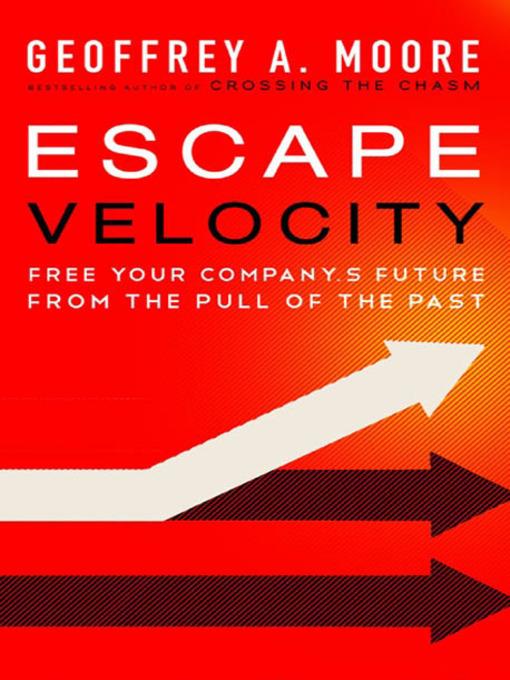
Escape Velocity
Free Your Company's Future from the Tyranny of Last Year's Operating Plan
کتاب های مرتبط
- اطلاعات
- نقد و بررسی
- دیدگاه کاربران
نقد و بررسی

May 16, 2011
Moore (Crossing the Chasm), founder of the consulting practice TCG Advisors, presents a plodding guide to freeing your company from "the pull of the past," stepping out of the status quo and succeeding in a globalized world in rapid flux. He suggests organizing and refining management approaches to managing the interactions between five aspects of your brand, each a particular power, e.g., "category" (high-demand products or services like smartphones and cloud computing), company status, and market force. He demonstrates how each type of power influences economic performance, sales and pricing strategy, competition, and positioning. He urges readers to focus on innovation, and advises freeing your company from legacy commitments. Moore has compelling and even executable ideas, but they're hard to find behind a thicket of dull writing and business jargon.

August 15, 2011
A Silicon Valley–based technology consultant and venture capitalist helps companies propel into the future—but only if they're fluent in BusinessSpeak.
Globalization has changed the way we do business, and Moore (Dealing With Darwin, 2008, etc.) knows that last year's plan, while standard-operating procedure, can often cause companies to miss out on future growth. The author presents a clearly defined five-point model, or "Hierarchy of Powers," to free businesses from stagnation: category, company, market, offer and execution. "Category power" gauges demand for products or services and changes with trends, while "Company power" utilizes bargaining and knowledge of genuine competition. Capitalizing on transitory markets is the key to "market power," where regional market niches reign. For example, Google might be top dog in search engines, but in China, the market leader is Baidu. Competition can be dealt with accordingly through Moore's nine-point strategy framework for creating market power in transitional markets. Return on innovation is the goal of "offer power," and the author succinctly describes the snare in which many businesses fall prey: wasting time on insignificant transactions. Moore cites Wikipedia as one successful model of offer power, as it created tenfold improvement in encyclopedia access and currency in less than a decade. He ends by charting "execution power" and ways to achieve continued efficiency and growth. Integrating all five powers, argues Moore, can launch both new and existing companies into the changing landscape of the 21st century.
If readers can get past the author's excessive use of jargon, this is a title worth reading for its smart corporate strategies.
(COPYRIGHT (2011) KIRKUS REVIEWS/NIELSEN BUSINESS MEDIA, INC. ALL RIGHTS RESERVED.)

July 1, 2011
Moore, consultant, entrepreneur, and venture capitalist, offers advice on how a company's management should continue to maximize results from past successes while setting sights on new growth and opportunities. Globalization is the significant reality that has changed the corporate landscape for everyone. Using case studies, charts, and diagrams, the author devotes a chapter to each element of his Hierarchy of Powers, which evaluates all economic competition in relation to five types of economic power: category power (demand for a given class of products/services), company power (typically exhibited in market share), market power (reputation within a market segment and its share of that segment), offer power (demand for a given product/service vis--vis competitors), and execution power (ability to outperform competitors). Moore concludes, the advantage goes to whomever can call the tune first, identify the relevant changes under way, find the pivotal role to play, and communicate the vision in actionable frameworks. This is a thought-provoking book for business leaders and those seeking leadership roles.(Reprinted with permission of Booklist, copyright 2011, American Library Association.)

























دیدگاه کاربران